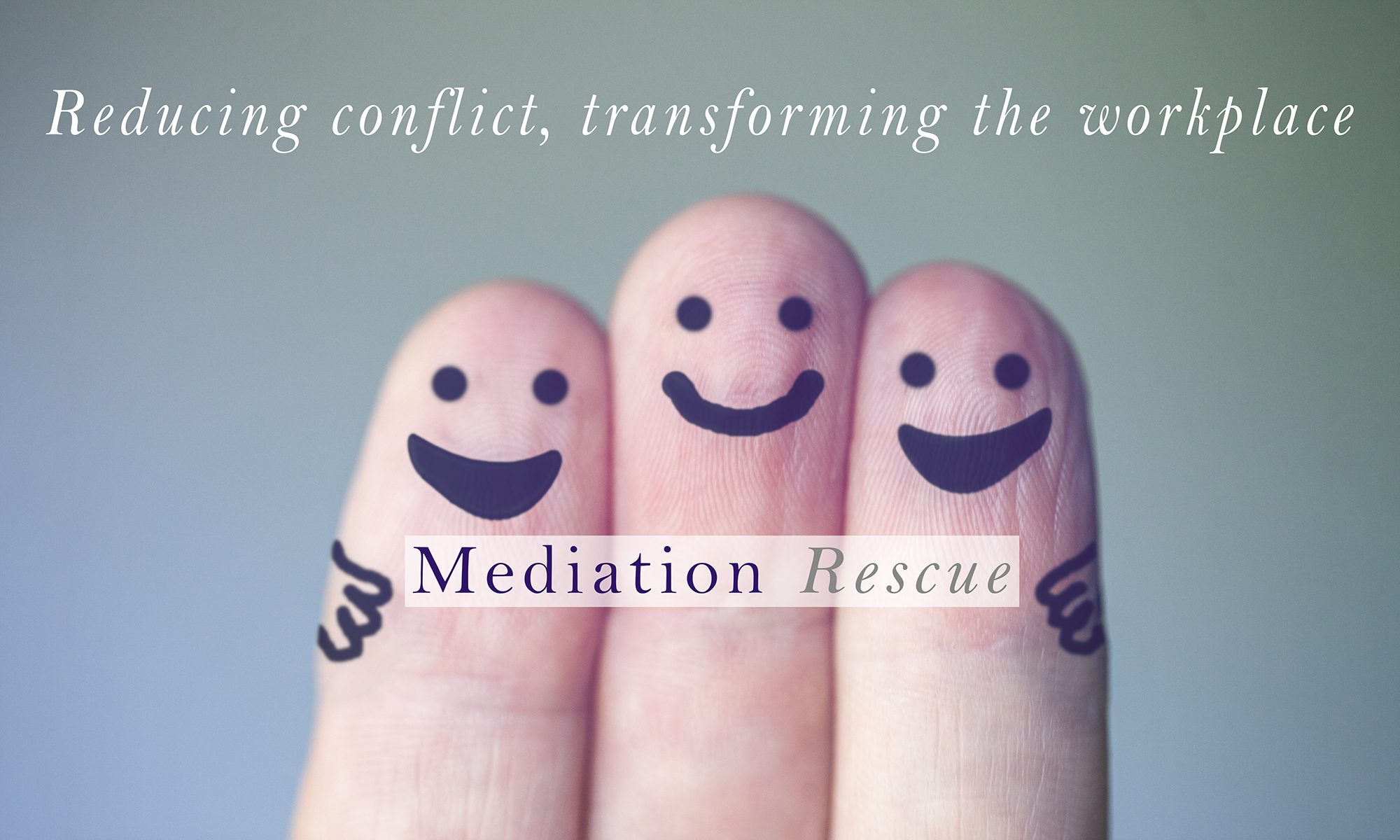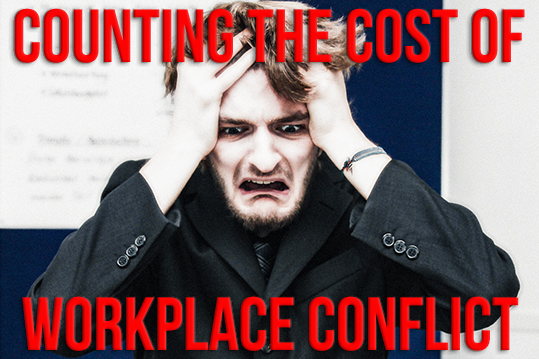Guess how much it costs…
Acas has published a new report containing research on the estimated cost of workplace conflict in the UK and it makes startling reading – Estimating the costs of workplace conflict. Acas has described the research as “a landmark event and hopefully one that will really ignite the debate about taking conflict more seriously”. Conflict is an issue at every level within a business from Boards and shareholders right down to the shop floor. The research has sought to take a systematic approach to analysing the incidence and estimating the cost of workplace conflict across UK organisations of all sorts.
The key statistics are truly attention-grabbing. Continue reading “Guess how much it costs…”
Remote Working Course
We have created a new course to help individuals and teams to review the benefits and challenges of their remote working. Below is the FREE abbreviated version of this course. Please take a look and if you or your organisation are interested in the full course or would just like to give us some feedback, please click here and we will get right back to you.
Tip: When you open the course by clicking “Present”, deal with the cookies settings request and then you should be able to click to enlarge to full screen for the best experience.
Why are men happier to work from home than women?
An interesting article in HR Review reports that research undertaken on remote working has shown that female staff report lower happiness and motivation than men when remote working.
The research results which are contained in a report by Ring Central (a cloud-based communications provider) suggest there is a small but significant difference between male and female experiences of remote working. Continue reading “Why are men happier to work from home than women?”
Managing and Supporting Remote Workers
As we enter the second round of Covid-19 lockdown, managing and supporting remote workers is still a fairly new challenge for a lot of managers. Remote working throws up a whole new range of issues both for employees and their managers. Businesses need to ensure that their managers have the tools and insights required to support workers effectively and sensitively.
Many workers have discovered that they enjoy a new level of autonomy and productivity from working remotely, but others feel lost, unmotivated and too easily distracted. Some will need much more support and active management than others. Managers need to assess the needs of individual workers and to understand the opportunities and challenges that may be presented by having a team that is now required to work remotely. They need to know the difference between checking-up and checking-in and which workers need what sort of contact and how frequently. These may be ‘soft skills’ but the value of making sure that your managers possess them cannot be overstated.
The physical and mental wellbeing of staff is undoubtedly harder to manage when most or all of the team are forced to work remotely. Good, effective and transparent communication is essential. Working in isolation or comparative isolation can lead to burnout, exhaustion and increased anxiety. Many employees will be concerned as to the future of their employment and the risk of redundancy, but there are many other issues that can arise from working remotely during lockdown. For example:
- Having the right technical equipment
- Having an appropriate and safe working environment
- Access to data and resources needed to work effectively
- Childcare
- Financial concerns caused by reduced pay
- Lack of social interaction
- Lack of visibility damaging promotion or advancement prospects
Managers may also need to have difficult conversations with employees about decreasing productivity, perceived lack of capability, unfavourable changes to working conditions, disciplinary issues or even as to the future of employment. These can be hard enough to manage well face to face, but managing them remotely can be a massive challenge.
Businesses must be alive to these challenges and invest time and money in improving management capability and soft communication skills. Having a difficult conversation with an employee is not just about communicating what the business wants or needs. More often than not, the most important part of having an effective difficult conversation is listening to what the other person has to say and responding appropriately. These are skills that can be acquired through training.
Utilising Mediation skills & effective communication techniques
Mediation Rescue offers management training in managing these Virtual conversations and equipping managers with the communication skills of how to engage positively during the challenges of the new ‘Hybrid’ Working environment.
7 GOOD REASONS WHY THERE HAS NEVER BEEN A BETTER TIME TO MEDIATE
1. Mediation is effective
Mediation is a proven and highly effective tool for resolving issues of all kinds, including contractual disputes, breakdowns in trading or working relationships. There are quite enough problems to navigate with the Covid-19 pandemic without adding ongoing or impending disputes to the equation.
2. Delay is not good
Delaying the resolution of an issue until after the lockdown is not an attractive option. It may be too late for all sorts of practical reasons to wait until the courts and tribunals are back up and running effectively – and anyway, who knows when that will be? Even when the courts and tribunals are back in business, there is going to be a big backlog of cases to be worked through. There is also a risk that the other party to the dispute might have gone out of business before you can deal with the issue by litigation.
Continue reading “7 GOOD REASONS WHY THERE HAS NEVER BEEN A BETTER TIME TO MEDIATE”
Collaborative Problem-Solving
We spend our whole lives being confronted by problems that impact upon other people and which need to be solved in some way. These may be in your personal or professional life, they may involve just one other person or they may involve many different groups of people all with conflicting interests and different points of view.
The more difficult and impactful the problem is, the more important and useful it is to find a solution that meets everyone’s interests. Usually, a ‘win/win’ solution of that type does not emerge on its own or from the input from only one party. It will usually require a collaborative and methodical process. Continue reading “Collaborative Problem-Solving”
Difficult Conversations at work: Addressing Mental Health
An interesting article by Clare Waller of Hewitsons in HR Review on the reticence shown by employees to have difficult conversations with line managers about mental health issues. The article draws upon a survey for the Institution of Occupational Safety and Health which showed that 80% of workers would not discuss their mental health issues with their line manager for fear of being stigmatised.
Although the situation is definitely improving, there is still a considerable amount of work to be done in the area of mental health in the workplace. Continue reading “Difficult Conversations at work: Addressing Mental Health”
Workplace bullying – is mediation appropriate?
A Guest Blog Post from Saranne Segal
We welcome articles and blog posts from anyone with an interest in workplace mediation. This month, we have an article from an experienced Australian workplace mediator who gives her own perspective on the use of workplace mediation in the context of bullying and harassment situations.
Bullying and harassment is nothing new to the workplace. However, because our world is becoming socially more conscious with the advent of movements such as #MeToo and #TimesUp, people are becoming more courageous about bringing these issues out into the open. A question I have pondered as a workplace mediator is whether mediation is the most suitable way to deal with the conflict that has arisen from the increase of bullying complaints in the workplace. Continue reading “Workplace bullying – is mediation appropriate?”
Employment Tribunal Claims Still Rising
Employment Tribunal quarterly statistics have just been published by the Ministry of Justice for the period from October to December 2018. They reveal that there has been another big rise in claims compared to the same quarter in 2017. In the period from October to December 2018, 9,811 single claims were received which was an increase of 23% and also revealed an increase from the previous quarter’s figure of 9,020. Continue reading “Employment Tribunal Claims Still Rising”








